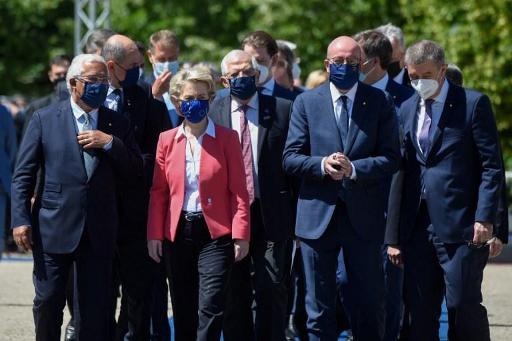EU heads of State and Government reasserted their commitment to “work towards a social Europe” in a joint statement adopted at an informal meeting in Porto, Portugal, on Saturday.
One day after the “social summit” organised by the Portuguese Presidency of the Council of Europe, the heads pledged political support for the European Pillar of Social Rights and a related plan of action proposed by the European Commission.
The plan of action “provides useful guidance for the implementation of the European Pillar of Social Rights, including in the areas of employment, skills, health and social protection,” noted the heads, who attended Saturday’s meeting in person, with the exception of the few who did so by videoconferencing.
In March, the European Commission had proposed translating the European Pillar of Social Rights, a list of 20 main principles approved in 2017, into actions, and identified three key targets for 2030.
These are: increasing the employment rate to 78%, providing at least 60% of adults with professional training each year, and reducing the number of persons threatened by poverty and social exclusion by 15 million, including five million children.
“Europe must be the continent of social cohesion and prosperity,” the heads stressed in Saturday’s text, which is more of a political statement than an implementation programme. “We reaffirm our pledge to work towards a social Europe,” they added.
The post-Coronavirus recovery supported by the huge lending planned by the EU will need to be “fair, sustainable and resilient,” they noted.
“A collective, inclusive, timely and cohesive recovery will strengthen Europe’s competitiveness, resilience, social dimension and role on the global stage,” said the heads of State and Government, who want the emphasis to be placed on creating high-quality jobs, education, professional training and reconversion, and support for young people.
They also stressed the importance of dialogue with the social partners, which is “at the core of a highly competitive social market economy.”
Related News
- Thousands demonstrate against joblessness during EU summit in Porto
- Portugal takes over EU presidency with focus on Europe’s recovery
On Friday, Portuguese Prime Minister Antonio Costa promised a “better Europe” with a more balanced, fairer, less financial, more economic and more social model of economic governance. However, EU members are not all on the same wavelength when it comes to the role Europe needs to play in issues pertaining to social rights, such as salaries.
Southern European countries such as France, Italy, Portugal and Spain are in favour of harmonising minimum wages. The northern countries are attached to their model of collective bargaining while Eastern Europe is totally opposed to such a measure, fearing it may cost them their competitive edge.
The Brussels Times

